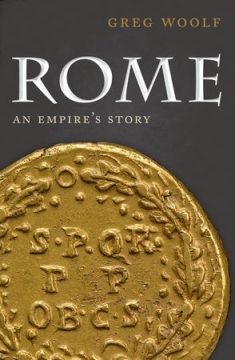- HOME
- INTRO TO THE FORUM
- USE AND MISUSE
- BADLY WRITTEN, BADLY SPOKEN
- GETTING
TO KNOW ENGLISH - PREPARING FOR ENGLISH PROFICIENCY TESTS
- GOING DEEPER INTO ENGLISH
- YOU ASKED ME THIS QUESTION
- ADVOCACIES
- EDUCATION AND TEACHING FORUM
- ADVICE AND DISSENT
- MY MEDIA ENGLISH WATCH
- STUDENTS' SOUNDING BOARD
- LANGUAGE HUMOR AT ITS FINEST
- THE LOUNGE
- NOTABLE WORKS BY OUR VERY OWN
- ESSAYS BY JOSE CARILLO
- Long Noun Forms Make Sentences Exasperatingly Difficult To Grasp
- Good Conversationalists Phrase Their Tag Questions With Finesse
- The Pronoun “None” Can Mean Either “Not One” Or “Not Any”
- A Rather Curious State Of Affairs In The Grammar Of “Do”-Questions
- Why I Consistently Use The Serial Comma
- Misuse Of “Lie” And “Lay” Punctures Many Writers’ Command Of English
- ABOUT JOSE CARILLO
- READINGS ABOUT LANGUAGE
- TIME OUT FROM ENGLISH GRAMMAR
- NEWS AND COMMENTARY
- BOOKSHOP
- ARCHIVES
Click here to recommend us!
TIME OUT FROM ENGLISH GRAMMAR
This section features wide-ranging, thought-provoking articles in English on any subject under the sun. Its objective is to present new, mind-changing ideas as well as to show to serious students of English how the various tools of the language can be felicitously harnessed to report a momentous or life-changing finding or event, to espouse or oppose an idea, or to express a deeply felt view about the world around us.
The outstanding English-language expositions to be featured here will mostly be presented through links to the websites that carry them. To put a particular work in better context, links to critiques, biographical sketches, and various other material about the author and his or her works will usually be also provided.
Fresh, more definitive retelling of the history of the Roman Empire
How was the mammoth empire of ancient Rome created, and how was it able to sustain itself over a millennium and a half, in the process shaping in great measure the world’s civilizations and cultures as we know them today?
Countless books have been written to chronicle the rise and fall of the Roman empire, but in a fresh retelling to be released this July, Rome: An Empire’s Story (Oxford University Press, 384 pages), British historian Greg Woolf makes use of new historical and archaeological research to make an even more sweeping, incisive, and compelling account of the conditions that made Rome’s empire-building so successful, so wide-ranging, and so durable.

“The Roman Empire was like a great tidal wave sweeping up more and more water before dissipating its energy,” says Woolf in the preface to Rome: An Empire’s Story. “Or it was an avalanche, starting small, accelerated by the patterns of snow and rock across which it moved, and then slowed again at the base of the slope… Writing this book I have tried to hold in my mind this sense that empire is a movement through historical times, not a fixed set of institutions.”
Woolf then proceeds to make riveting accounts of the events and men and women that figured decisively in the history of Rome, from its war with Carthage to Octavian’s victory over Cleopatra, from its great territorial expansion under the emperors Trajan and Hadrian to the founding of Constantinople, then onwards to the barbarian invasions that brought about Rome’s ultimate collapse.
Says Tom Holland, author of Rubicon: The Triumph and Tragedy of the Roman Republic in his advance review of Woolf’s book: “How a single-volume history of Rome could contain so much is beyond me. Ranging across time and space, and examining every facet of Roman civilization, it also places Rome’s empire in the context of empires elsewhere, from China to Peru. Woolf has written what will surely establish itself as the definitive introduction to his subject.”
Read excerpts from Greg Woolf’s Rome: An Empire’s Story in Amazon.com now!
Read excerpts from Greg Woolf’s Rome: An Empire’s Story in the Oxford University Press website
ABOUT THE AUTHOR:
Greg Woolf is professor of ancient history at the University of St Andrews. He is the author of Et Tu, Brute?: A Short History of Political Murder and editor of The Cambridge Illustrated History of the Roman World.
ANOTHER INTERESTING READING:
In “Cuckoo,” an article that came out in the April 29, 2012 issue of New York Magazine, Kathryn Schulz claims that our body clocks have a social jet lag and it’s making most of us a little crazy. “Among species,” she says, “we humans are to time what Polish villagers have long been to place: unhappy subjects of multiple competing regimes. The first regime is internal time: the schedule established by our bodies. The second is sun time: the schedule established by light and darkness. These two we share with houseplants and virtually every other living being. But we are also governed by a third regime: social time…(It) is the villain in this drama, out to turn you against health, happiness, nature, sanity, even your own inner self.”
Read Kathryn Schulz’s “Cuckoo” in the New York Magazine now!






